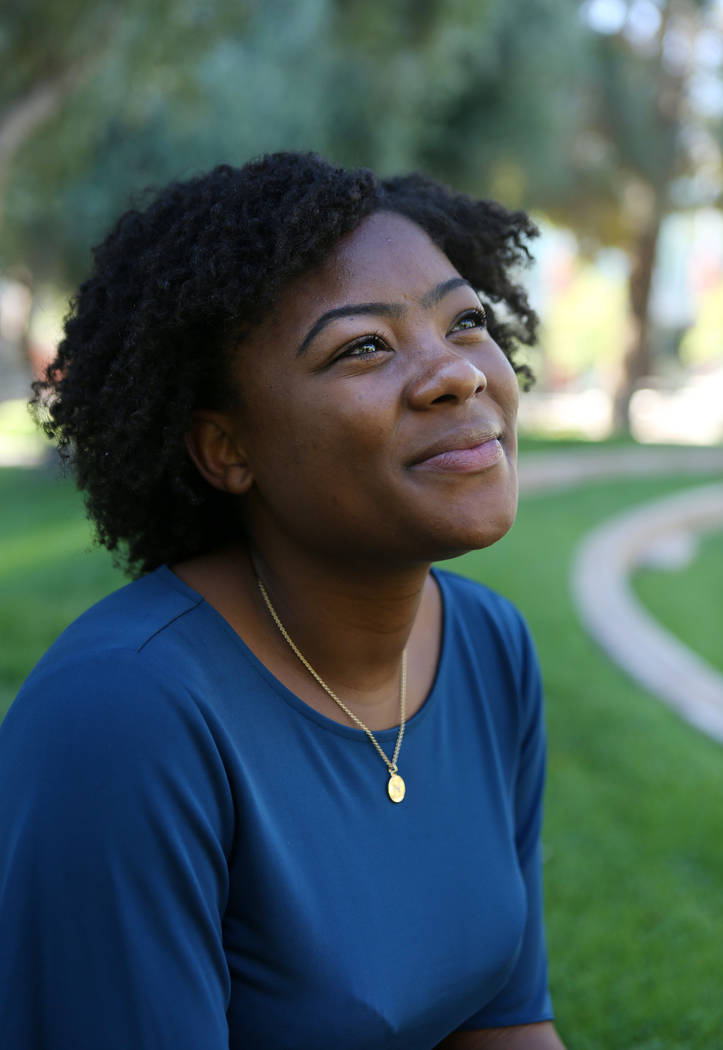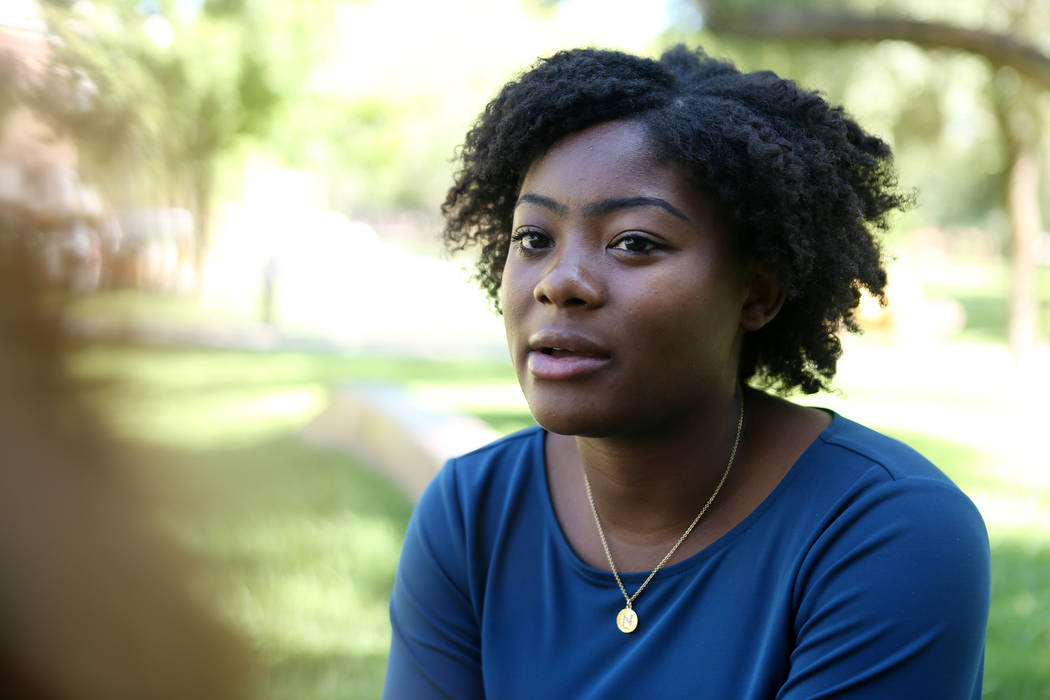New fee at UNLV places priority on mental health
Over the past four years, mental health appointments at UNLV have skyrocketed.
The 64 percent increase from 2012 has put a strain on wellness center staff, leading to long wait times for intake appointments, sometimes as long as four weeks.
“When you are in a desperate or volatile situation as a student, such as course stress or depression, four weeks is not a sufficient time frame to get seen,” said Samantha Bivins, chairwoman of the health and safety committee for student government.
The need for more services was so great that students proposed a mental health fee of $25 tacked on to their tuition each fall and spring semester. That pays for up to 12 appointments per semester, but the psychologist can request additional sessions if needed.
“Retention is dependent on the health of your students,” Bivins said. “If your population is not mentally well, they cannot succeed and move forward. Maybe as a nation we should start focusing more on mental health. It’s the foundation of us being more successful as a society.”
‘Money well spent’
Naomi Lewis knew counseling was the foundation she needed.
Lewis, who was suffering from depression and suicidal thoughts, said counseling helped her become successful before she was a UNLV student.
“Had I not gone, I definitely think I would have flunked out, or just not had gone at all to college,” Lewis said, adding that her senior year of high school was the “worst experience” for her.
“It was really bad. It was really difficult for me. So I’m glad I did go and was able to get through most of college.”
Lewis said she expects to graduate in the spring with a bachelor’s degree in environmental studies.
Jamie Davidson, a psychologist and associate vice president for student wellness, said the school’s wellness center in recent years has helped UNLV retain about 80 percent of the students who have considered dropping out.
“I think it’s money well spent, this health fee, for helping students see improvements now but also getting their degrees,” Davidson said.
A national trend
According to the 2016 annual report by the Center for Collegiate Mental Health at Penn State University, 150,483 students sought mental health treatment during the 2015-16 academic year. That was a 50 percent increase over the prior year.
The surge has led to long wait times for students who might be experiencing anxiety and depression — the two most commonly cited issues among college students.
“In student government, it was one of the chief complaints we would hear every semester,” Bivins said. “There was never an issue with the quality of services. They were just not happy with the amount of time they had to wait to be seen.”
Davidson said myriad factors could be behind the increase.
One reason, he said, is that mental health conditions usually present themselves between the ages of 14 and 24, which aligns with the age of many college students.
“They’ve been in the mental health system,” he said. “When they come to campus, they want to just continue their counseling or see our psychiatrist.”
Davidson also said the federal government has increased resources it puts toward educating people about the importance of emotional and mental health.
“I think it’s really paid off,” Davidson said. “So now you see students who have learned this, and when they feel stressed, overwhelmed, they’re coming into counseling. Which is great, because it’s exactly what we want for them to do.”
With increased awareness, the stigma surrounding mental health is fading, Lewis said.
“I think the younger generation is more open about these things,” she said. “I think they’re more accepting of the fact that people have these issues and it’s OK to seek out help.”

Improving retention
The fee increase will allow Davidson to hire eight additional staff, which will nearly double the number of clinicians employed by the university. Lewis is happy students saw the need for the fee but said the university should shoulder more of the burden.
“I think UNLV should put more of an effort into funding these kind of programs instead of putting all of the pressure on students to pay for these services,” Lewis said.
Regent Allison Stephens shared similar concerns at the June board meeting when the fee was unanimously approved. She said she was uncomfortable with students paying more fees with the university sitting on $380 million in cash reserves.
The $25 fee is nominal, Davidson said, because outside therapy could cost $150 to $300 per appointment.
He also believes the university is better poised to connect mental health to academic success.
“Whether you’re just going through a relationship breakup, or you’re depressed, or anxious, or whatever it may be, it’s hard to focus on your job or academics,” he said. “We help students manage those issues so they can focus fully on what they’re doing.”
Contact Natalie Bruzda at nbruzda@reviewjournal.com or 702-477-3897. Follow @NatalieBruzda on Twitter.
Nevada State College
UNLV began providing counseling services to Nevada State College students in 2015.
Fearing, however, that the service was underused, Dean of Students Richard Yao pushed for on-campus services.
"We felt there was an access issue," Yao said. "We were referring a lot of students, but based on billing sheets, we had seen an underutilization."
Yao said it can be difficult for students in psychological distress to travel to another campus to seek help, adding that navigating an unfamiliar campus can be daunting.
The college solved the issue by contracting with a community agency, which sends a licensed clinician to the campus once a week. The college is increasing the clinician's presence to two days a week, beginning this fall.



















